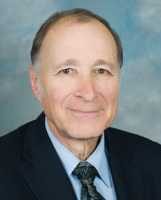21 Jul How To Evaluate Cognitive Function in the Aging Physician?
MedicalResearch.com Interview with:
E. Patchen Dellinger, M.D.
Professor, Department of Surgery
University of Washington, Box 356410
Seattle, Washington 98195-6410
MedicalResearch.com: What is the background for this study? What are the main findings?
Response: As I passed the age of 70 myself and began considering when to slow down and/or retire I decided to examine the literature about age and physician competence. I have had a wonderful, rewarding time in surgery but have always wanted to provide the best possible care for my patients. On my review of an extensive literature on this topic I found examples of physicians who had become dangerous to their patients with age but persisted because of their eminence and also of physicians who continued to deliver high quality care well into old age.
In medicine, unlike most other safety conscious industries, we have not really taken a systematic approach to the issue of policies related to the aging physician.
MedicalResearch.com: What should clinicians and patients take away from your report?
Response: The evidence shows that on average, physicians at any particular age retain more cognitive function than otherwise normal nonphysicians on average at the same age. For both groups there is a steady, gradual decline in cognitive function with age. However, the variability in cognitive function increases dramatically with age, meaning that while many physicians retain their full cognitive function and ability to provide high quality care for their patients, others have serious decline and should not practice any more.
MedicalResearch.com: What recommendations do you have for future research as a result of this study?
Response: Further research would be useful to society and to the medical profession. In the meantime, the medical profession should begin to seriously consider careful evaluation in a nonpunitive way for physicians at some age in order to support those who continue to deliver great care based on their decades of experience and to protect patients from those who no longer can do that.
MedicalResearch.com: Is there anything else you would like to add?
Response: I have given this topic as a Grand Rounds in my own department and asked my colleagues and residents to inform me if at any time they have any concerns regarding the care that I deliver. I recognize that this approach is not actually sufficient based on multiple reports cited in our paper, and I have also voluntarily taken cognitive and physical ability tests and a comprehensive medical exam as recommended in our paper and others for all practicing physicians.
MedicalResearch.com: Thank you for your contribution to the MedicalResearch.com community.
Citation:
Note: Content is Not intended as medical advice. Please consult your health care provider regarding your specific medical condition and questions.
Last Updated on July 21, 2017 by Marie Benz MD FAAD

